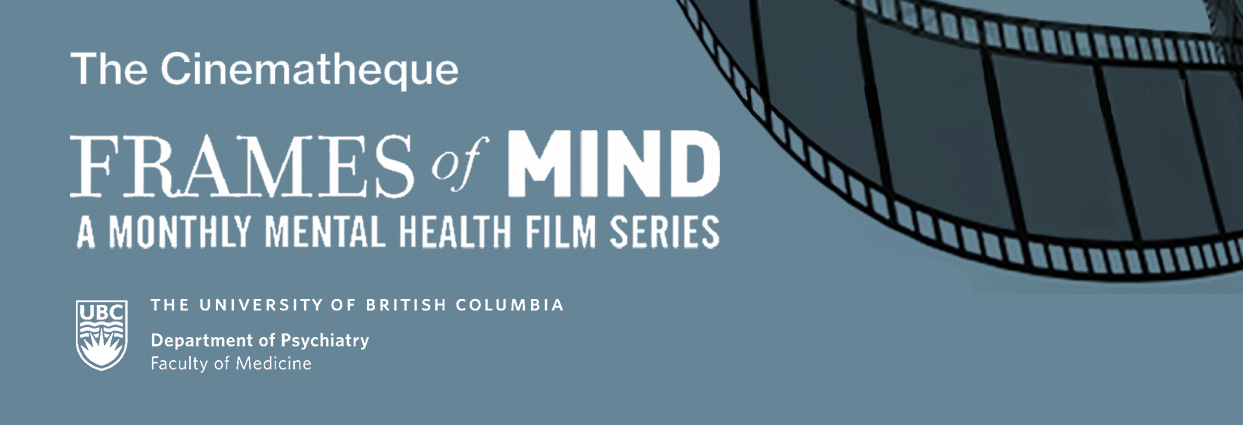
A monthly film series promoting professional and community education on issues pertaining to mental health and illness. Presented by The Cinematheque and the Institute of Mental Health, UBC Department of Psychiatry. Screenings are generally held on the third Wednesday of each month at The Cinematheque, 1131 Howe St, Vancouver, BC.

USA 2023 (97 min DCP)
Director: Brittany Snow
Wednesday April 10th @ 7:00pm
The Cinematheque (1131 Howe St)
Film Description
The night after leaving a treatment recovery centre for an eating disorder and suicide attempt, Riley (Courtney Eaton, Yellowjackets) finds herself bored at a karaoke bar. There she meets Ethan (Thomas Mann), a charming friend of a friend. The two twentysomethings hit it off, entwining themselves in a years-long “situationship” that teeters between friendship and romance. Ethan is smitten by Riley and does everything he can to subvert the distorted image she holds of herself. Riley, whose self-loathing tendencies can be difficult to watch, supports Ethan as he struggles to connect with his alcoholic father. Underneath witty banter and Gen‑Z pop culture references, this directorial debut from actor Brittany Snow (Pitch Perfect, Hairspray) offers a refreshing romantic drama that explores the messy reality of codependent relationships.
Special Jury Award for Performance (Courney Eaton)T
Thunderbird Rising Special Award (Brittany Snow)
SXSW 2023







“A gentle, earnest indie about love, self-loathing, and other dependencies … Deeply felt and certainly proves that [Snow] has a promisingly deft directorial hand.” — Jessica Kiang, Variety
“Smart and compassionate … There have been movies before about women with eating disorders. But this may be one of the first for the Gen Z and younger generations that nails just how tentacular the psychology of such conditions can be.” — Leslie Felperin, The Hollywood Reporter
Post-screening Discussion:
Post-screening discussion with Maude Henri-Bhargava, RD, and Lauren Jennings, MOT. Moderated by Dr. Harry Karlinsky, Clinical Professor, Department of Psychiatry, University of British Columbia
About the Panel:
Maude Henri-Bhargava is a registered dietitian working at St. Paul’s Hospital’s Provincial Adult Tertiary & Specialized Adult Eating Disorders program. For more than a decade, she has helped individuals create or reignite a healthy relationship with food and their bodies through an inclusive, trauma-informed, and anti-diet lens.
Lauren Jennings is an occupational therapist who has been working in the Provincial Adult Tertiary & Specialized Adult Eating Disorders program at St. Paul’s Hospital for over a decade. In the midst of obtaining a master’s in counselling psychology at Adler University, she is passionate about working in the field of eating disorders and challenging biases and stigma around mental health.
Dr. Harry Karlinsky, the Series Director of Frames of Mind and a Clinical Professor in the UBC Department of Psychiatry, has a longstanding commitment to professional and public education. He has presented nationally and internationally on topics ranging from Alzheimer’s disease to information technology to narrative medicine to PTSD and to the use of films in health care education.
Want to be a regular at Frames of Mind screenings on the third Wednesday of every month? Subscribe to the email list and be the first in line for tickets!





